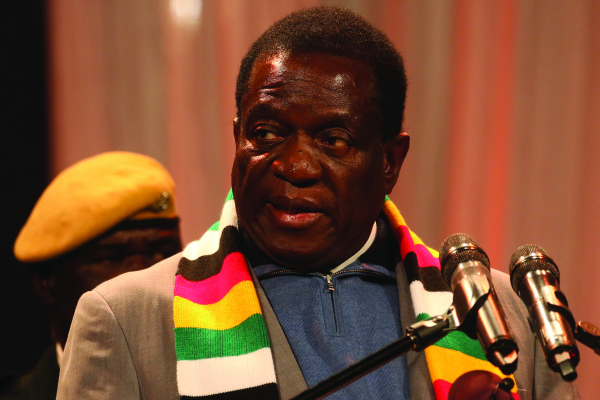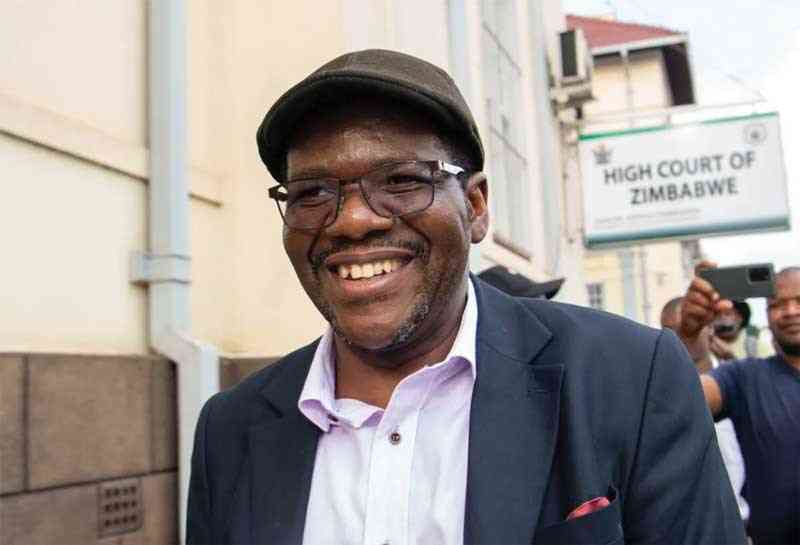
BY Everson Mushava
THE European Union (EU) has announced a US$5,5 million funding facility for pro-democracy civic organisations in Zimbabwe, a development that will likely give President Emmerson Mnangagwa’s government nightmares after he recently accused the non-governmental organisations (NGOs) of fronting a regime change agenda.
In a statement released on Tuesday, the EU said the fund will capacitate civil society organisations (CSOs) to contribute meaningfully towards good governance, accountability and development processes in Zimbabwe.
“In total, the EU is providing €5 million (approximately US$5,5 million) for projects that enhance the capacity of civil society organisations to constructively participate in decision-making processes at all levels to promote good governance, accountability, transparency and social cohesion,” the statement read.
“The projects ought to strengthen CSOs efforts to develop a conducive operational environment and to promote access to and dissemination of information on development processes.”
The development comes after Mnangagwa’s administration accused NGOs of advancing a regime change agenda after they criticised government on its handling of human rights issues. Mnangagwa’s government has been criticised over its heavy-handedness after deploying soldiers to deal with August 1, 2018 post-election protests and January 14-16 2019 fuel price hike protests that led to the death of over 20 people and nearly 200 injured.
Mnangagwa last month warned that his government would not accept civil society organisations wading into politics and being used to effect regime change agendas.
His government also tightened requirements for registration of NGOs to ostensibly prevent money-laundering and funding of terrorist activities. His administration also suspended operations of the Masvingo-based Community Tolerance Reconciliation and Development, but the suspension was later quashed by the High Court.
- Chamisa under fire over US$120K donation
- Mavhunga puts DeMbare into Chibuku quarterfinals
- Pension funds bet on Cabora Bassa oilfields
- Councils defy govt fire tender directive
Keep Reading
EU ambassador to Zimbabwe Timo Olkkonen said his bloc would continue to support CSOs to ensure good governance and accountability so that they remain key actors in the attainment of the Sustainable Development Goals (SGDs).
“This will include strengthening them to effectively perform their monitoring and representative role, which also entails empowering women and men to collectively tackle injustice and inequality, to advocate for better social services and decent livelihoods,” Olkkonen said.
“In the same way that CSOs demand accountability from duty bearers, they also have to be accountable and practise the same principles that they expect others to uphold, hence, the call for proposals also seeks to further strengthen CSOs to be more professional, transparent and effective.”
According to the statement, the call for proposals aimed at strengthening CSOs to meaningfully contribute to governance and development processes in Zimbabwe was launched in the framework of the Civil Society Organisations and Local Authorities (CSO – LA) thematic programme.
The objective of the programme is to “strengthen CSOs and local authorities in partner countries with the aim of fostering an enabling environment for citizen participation and civil society action and co-operation, exchange of knowledge, experience and capacities, in support of internationally agreed development goals and in this instance, the 2030 agenda”.
The call is in line with the objectives of the Cotonou Agreement, which governs relations between Zimbabwe and the EU, the statement read.
MDC spokesperson Jacob Mafume said his party welcomed the move by the EU “because democracy was desperately needed in the country”.
“We do believe that Zimbabwe needs democracy and NGOs that work in democracy space need to be funded. The NGOs should be wary of becoming proxies of the State. They should be pure pro-democracy organisations working for the democracy of the country,” Mafume said.
Political analyst Alexander Rusero yesterday said the move was a clear message to Mnangagwa to reform. “I think it’s a clear message to Mnangagwa that they are not prepared to work with Mnangagwa at the moment,” Rusero observed.
“When you have a whole EU community funding quasi-opposition movements, they are pushing government to democratise; it is a blow to Mnangagwa’s engagement process.”











